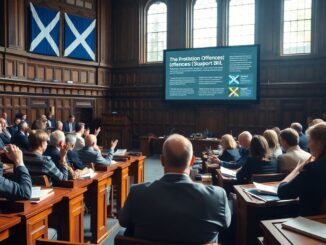In a bold move that could reshape family immigration policy, a recent review from the Migration Advisory Committee (MAC) has set the stage for a potential sh...

Topics covered
In a bold move that could reshape family immigration policy, a recent review from the Migration Advisory Committee (MAC) has set the stage for a potential shift in the income requirements for family visas in the UK. The current threshold of £29,000 is under scrutiny, with experts warning that increasing this amount might infringe on human rights laws.
This development has sparked heated debates about the intersection of immigration, family rights, and economic viability.
The proposed changes to family visa income thresholds
The MAC’s report raises significant questions about the financial barriers faced by families wishing to reunite in the UK.
Current guidelines suggest that the minimum income requirement should be lowered to between £24,000 and £28,000, a figure deemed more reasonable compared to international standards. This recommendation is aimed at prioritizing economic wellbeing while acknowledging the fundamental right to family life, which could be jeopardized by excessively high income thresholds.
The report highlights a critical point: the existing threshold disproportionately affects families, especially those with children. Many families struggle to meet the current requirement, which is often tied to the income levels of skilled workers earning £38,700. The MAC argues that this approach fails to recognize the distinct purposes of family versus work visas, raising concerns about its compatibility with international obligations, particularly Article 8 of the European Convention on Human Rights.
Family life versus economic viability
The MAC stresses that the family immigration route serves a different purpose than the skilled worker route. Its chair, Professor Brian Bell, commented, “Given the family route that we are reviewing has a completely different objective and purpose to the work route, we do not understand the rationale for the threshold being set using this method.” This statement underscores the urgency for a reevaluation of how income thresholds are determined, emphasizing the need for a more nuanced understanding of family dynamics.
The MAC’s report suggests a potential increase in net migration if the threshold is lowered. Estimates indicate that adjusting the requirement to £24,000 could lead to a rise in projected future net migration by one to three percent. This statistic raises eyebrows: is the government prepared to face the consequences of a more liberal immigration policy?
Insights from advocacy groups
Advocacy groups are already responding to the MAC’s findings. Caroline Coombs, Executive Director of Reunite Families UK, passionately argued that any minimum wage threshold remains a barrier for many families. “We welcome the recommendation that these routes have different objectives and purposes,” she stated, highlighting the disconnect between economic requirements and the reality of family reunification.
As the government weighs the MAC’s recommendations, questions loom large. Will they heed the call for a more compassionate approach to family immigration, or will they continue to uphold rigid economic standards that could leave countless families in distress? The stakes are high, and every decision made in the coming weeks could alter the landscape of family reunification in the UK.
Political implications of the review
The political ramifications of this review cannot be underestimated. The previous government had intended to align family visa income requirements with those of skilled worker visas, a move that was halted by Labour amid widespread criticism. Home Secretary Yvette Cooper has now tasked the MAC with finding a balance between economic considerations and the right to family life, revealing a governmental shift towards a more humanitarian stance.
However, as the MAC’s report circulated, fresh debates ignited in Parliament. The tension is palpable, with some politicians advocating for stricter thresholds, citing economic stability, while others rally for more humane policies that prioritize family unity.
The MAC’s findings are a call to action. They highlight the urgent need for comprehensive data collection and analysis to inform future policy decisions. Without adequate data, the government risks implementing policies that could further alienate and destabilize families already facing significant challenges.
The future of family immigration in the UK
As discussions intensify, the future of family immigration hangs in the balance. The MAC has provided a framework for change, but will the government have the courage to act? The voices of advocacy groups and families affected by these policies will continue to resonate in the corridors of power.
This debate is not just about numbers; it’s about the lives and futures of families yearning to be together. The question remains: can the UK find a way to balance economic viability with the fundamental human need for familial connection? As the clock ticks, the nation awaits answers that could redefine what it means to belong in the UK.




